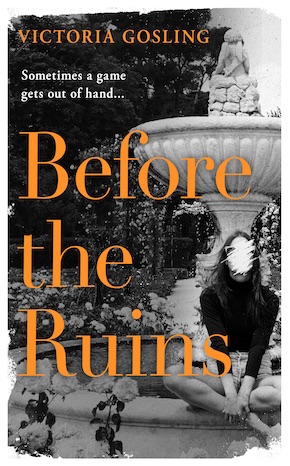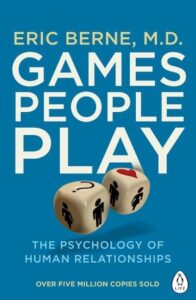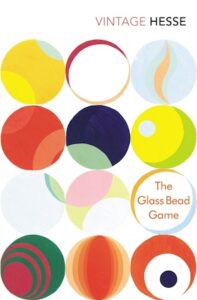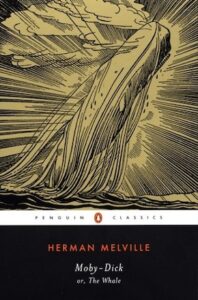What are you playing at?
by Victoria Gosling
“Engrossing, beguiling, and with an undertow of menace, Before the Ruins is a masterly debut from a richly talented author.” Sarah Waters
What is the opposite of a game? Work? Reality? Real life? Read the books on this list and you’ll be even less certain. From a teacher lured into a game of make-believe (or is it?) on a Greek island, to the S&M mind games of The Image, to Professor Johan Huizinga’s seminal Homo Ludens, the more attention we pay to the games in these books, the flimsier and more performative the rest of our lives appear.
In my debut novel Before the Ruins, a group of friends trespasses on the grounds of an abandoned manor house where once a famous necklace went missing. Many years later the narrator Andy recalls, “We spent the summer playing a game in which we searched for the diamonds. The game was a ritual, the ritual a spell.” The power of the game to suspend the rules, to seduce, transport and renew is matched only by its ruinous consequences.
Below you’ll find the fruits of my life-long fascination with games. Read on to find out where to go if you want to learn more about ‘deep play’, ‘the magic circle’, or just how to start your own game-based cult that’ll bring the FBI after you.
The Dice Man by Luke Rhinehart
Published in 1971, The Dice Man became a cult classic that went on to sell over two million copies. The narrator, also called Luke Rhinehart, is a bored, affluent psychiatrist. On a whim, he starts making decisions based on the roll of a die. Mayhem ensues, then spreads. The game wins flocks of followers and gives birth to a cult with a messianic leader. I first read The Dice Man over twenty year ago and no book was ever so deliciously subversive. I’ve never reread it as I suspect it’s dated, but for a shy, awkward teenager, the prospect of overcoming the traps of personality, habit and conformity by simply rolling a die was too appealing for words.
The Magus by John Fowles
In The Magus, Nicholas Urfe, a young Englishman, accepts a teaching position on a Greek island. There he encounters Conchis, a wealthy recluse and Prospero-like figure, who draws him into a ‘magic circle’ and a series of psychological games. Masques take place on the property – allegories of Greek mythology, or the island’s recent history, or are they referring to events even closer to home? Soon Nicholas is struggling to tell what’s real and what’s artifice. Ambitious, sexy, and confusing, The Magus takes aim at some weighty existential themes; despite its controversial ending, it remains as enchanting as the island itself.
I dare you to read this and not instantly recognise at least half of the games. The question is, which ones are you guilty of and why are you playing them?”
 Games People Play by Eric Berne
Games People Play by Eric Berne
Beware! Once you’ve read this book, you can never unread it. The author is a psychologist who developed the theory of Transactional Analysis, and the first part of the book contains an earnest discussion of ego states. After that, the fun begins as Berne describes a series of mind games people play – often unwittingly – giving them hilarious names such as Look What You Made Me Do, If It Wasn’t For My Wooden Leg and I’ve Got You Now, You Son of a Bitch! To each game, or dynamic, he ascribes a covert motivation which he calls the ‘payoff’ or ‘goal’. I dare you to read this and not instantly recognise at least half of the games. The question is, which ones are you guilty of and why are you playing them?
The Image by Jean de Berg (a.k.a. Catherine Robbe-Grillet)
Most of the romance novels I read growing up followed as strict a set of rules as any game: young woman, an older, wealthy man, crackling sexual tension and a series of misunderstandings that culminated in a post-marriage shagfest. In Catherine Robbe-Grillet’s sadomasochistic erotic novel The Image, published in 1956, all the latent cruelty and power games of those cheap, scented paperbacks are brought to the surface. Jean, the male narrator, is invited by Claire, a woman he knows but slightly, to punish her submissive Anne in a series of escalating scenarios. Puzzled by their behaviour, he comes to understand Claire is using Anne as her mirror image and the scenarios are a test, ultimately culminating in… well, you’ve probably guessed it. A slender, scandalous, clever little book that reminds me of another French classic, Dangerous Liaisons by Le Clos, its author, now in her nineties, remains France’s most infamous dominatrix.
Homo Ludens by Johan Huizinga
Written in 1938 by a Dutch professor of Cultural Theory, Homo Ludens is the most scholarly work I’ve ever read by choice, and that’s because it’s completely fascinating. Ludens comes from the Latin verb ludere, which has no exact translation in English but means something close to play, sport, school or practice. Huizinga posits that play defines our species and is older than culture itself. Considering play in law, war, art, philosophy and mythmaking, the book is illustrated with fascinating examples – from Cretan bull-leaping to the wigs judges wear as a form of dancing mask. Instrumental to the development of the concept of ‘the magic circle’, a place where the normal order and reality of the world are suspended, Homo Ludens invites you to see the world in a completely different light.
 The Glass Bead Game by Herman Hesse
The Glass Bead Game by Herman Hesse
I first came across The Glass Bead Game in India in 1999. Every hippy worth their chillum had a copy. When I finally read it, I was intrigued to discover this was no sandalwood-scented work of mysticism but a rather austere and dry novel in which Hesse explores the question of how to live. Should we absorb ourselves in the transcendent, seek to serve humanity, or allow personal relationships to take precedence? Presented as a chronicle of the future, circa Year 2400, in which an elite intellectual order, Castalia, has arisen in response to the devastating wars of the twentieth century, the titular game is Castalia’s secular sacrament and the novel’s hero, Josef Knecht, its most exalted exponent. His journey exemplifies Hesse’s philosophical thrust, although a coda to the main body of the novel that seems to explore Knecht’s previous incarnations suggests we will face all of our choices at least one more time.
The Westing Game by Ellen Raskin
This YA novel is a joyous puzzle with more than a hint of Agatha Christie. When paper tycoon Sam Westing dies, the residents of Westing Towers are invited to the reading of the will. There, divided into pairs, they are given clues and set a task: to solve his murder and identify the old man’s killer. The winners will inherit a two-hundred-million-dollar fortune. The odd-couple pairings, the fiendish clues, and the fact that not everyone – least of all the game-setter himself – are who they say they are, all make for a charmingly quirky page-turner.
The Royal Game (a.k.a. Schachnovelle) by Stefan Zweig
In this novella, an unnamed narrator travels by passenger liner from Europe to the Americas. On board is the world chess champion, Czentovic, who Zweig describes with typical snobbery as a dull and ignorant peasant, who possesses a genius for chess but no other signs of the slightest intelligence. Also on board is Dr B, an Austrian noble, who has recently escaped the Nazis. During solitary confinement, Dr B stayed sane by coaching himself to grandmaster-level chess via a stolen compendium of historic world tournament games. Only, after splitting his mind into Black and White to play against himself, he went lost his mind. Now, facing off in a chess game against Czentovic, can he keep his grip? Anticipating Zweig’s final masterpiece The World of Yesterday, The Royal Game depicts a world in which the old guard, for all its superiority of taste, character and refinement is no match for the brutality of fascism.
To my mind, the ‘deep play’ daddy of them all is Moby-Dick. To make the game more interesting, Ahab even nails a gold doubloon to the mast, promising it as a prize to the man who first catches sight of his nemesis.”
I first encountered the term ‘deep play’ in Simon Thompson’s brilliant history of British climbing Unjustifiable Risk.Coined by the philosopher Jeremy Bentham, ‘deep play’ is defined as any activity where the stakes are so high no rational person would engage in it. Lots of the books I adore about mountaineering – Into Thin Air by Jon Krakauer, Touching the Void by Joe Simpson, Solo Faces by James Salter, Mountains of the Mind by Robert Macfarlane – are love songs to ‘deep play’, as are many books about war. But to my mind, the ‘deep play’ daddy of them all is Moby-Dick, in which Captain Ahab and crew sail the oceans on a revenge mission against an albino whale, forgoing profit, self-preservation and sanity along the way. To make the game more interesting, Ahab even nails a gold doubloon to the mast, promising it as a prize to the man who first catches sight of his nemesis.
Game Changers: The Unsung Heroines of Sports History by Molly Schiot
For someone who likes exercise but not competitive sport, I love a sporting autobiography. Perhaps because there’s some parallel between the lives of elite athletes and that of writers – the endless, gruelling training, the loneliness, the reserves of endurance that must be found, the failures, the triumphs, the lives lived in service to an irrational goal. In Andre Agassi’s Open, the sporting legend tells us he always hated tennis and that it drove him to crystal meth. In Jonny Wilkinson’s Jonny, the rugby player describes the punishing OCD and perfectionism that afflicted him since childhood. Pressure is a Privilege by Billie Jean King is a lesson in goal-setting, determination and integrity. If you’re interested in sports psychology, try Zen Putting by Joseph Parent or The Inner Game of Tennis by W. Timothy Gallwey. In fiction, Hemingway’s The Old Man and the Sea or Foster-Wallace’s Infinite Jest, but above all have a go at Game Changers: The Unsung Heroines of Sports History by Molly Schiot, a book that celebrates forgotten, pioneering female athletes of the twentieth century, and where you’ll discover – if you didn’t know it already – that half the game is being allowed on the pitch/court/field in the first place.
 Victoria Gosling grew up in Wiltshire and studied at Manchester University and the University of Amsterdam. She has lived in London, Australia, Brazil, the Czech Republic and Berlin. She is the founder of The Reader Berlin and organises The Berlin Writing Prize. Before the Ruins is published in hardback, eBook and audio download by Serpent’s Tail.
Victoria Gosling grew up in Wiltshire and studied at Manchester University and the University of Amsterdam. She has lived in London, Australia, Brazil, the Czech Republic and Berlin. She is the founder of The Reader Berlin and organises The Berlin Writing Prize. Before the Ruins is published in hardback, eBook and audio download by Serpent’s Tail.
Read more
victoriagosling
@victoriagosling
@serpentstail


